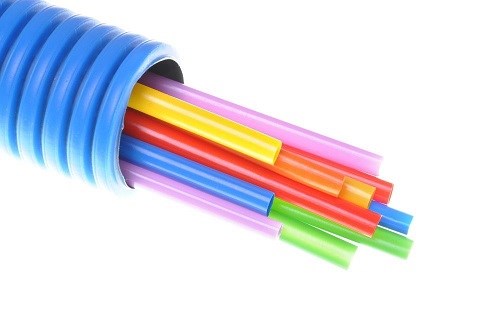Additives Enhance Processing, Performance Of Engineering Resins
Struktol is debuting additives based on novel chemistry that enhance performance of nylons 6, 6,6 and more.


This week at NPE, Struktol is unveiling three new additions to its product line of processing additives for engineered plastics, said to provide greater processing and performance capabilities for compounders, processors, and end users.
• New Struktol TR 063A, a highly-efficient lubricant and viscosity reducer for nylons 6 and 6,6 compounds,boasts a novel chemistry which is said to make it highly compatible with nylon resins and is superior in performance to alternative lubricants such as Montan ester waxes. It is said to provide compounders and processors with a cost-effective, versatile process additive that can significantly improve throughput and efficiency. The pelletized additive can be added directly at the compounding stage or by the processor during manufacturing of extruded or injection molded parts.
• Struktol TR 044W provides a combination of viscosity reduction and mold release characteristics for PC resins and compounds. At loading levels as low as 0.2%, it has been shown to increase melt flow and allow for significant improvements in mold filling and release. Processors using this additive in clear applications can expect to see minimal haze development even at higher loading levels. The improved processability can result in lower molded-in stress in injection molding applications that often will mean better part performance. This additive is also effective in highly-filled PC compounds, providing improved dispersion and lower viscosities, says Struktol.
• Struktol TR 077 is said to provide processors of nylon 6 and 6,6 the additional benefit of improved metal release. This additive exhibits added external lubricity for both extrusion and molding applications. It is said to be an excellent replacement product for applications where traditional powder zinc stearate is currently being used, offering superior processing, as well as better handling due to pastille product form. It also works well in many other polymer systems including PS, concentrates, many polyolefins, and thermosets, and also meets requirements of many FDA applications.
Related Content
-
Lanxess and DSM Engineering Materials Venture Launched as ‘Envalior’
This new global engineering materials contender combines Lanxess’ high-performance materials business with DSM’s engineering materials business.
-
Volume Resin Prices Move in Different Directions
PE, PP, PVC, and ABS prices slump, while PS, PET, PC, and nylons 6 and 66 prices rise.
-
Resins & Additives for Sustainability in Vehicles, Electronics, Packaging & Medical
Material suppliers have been stepping up with resins and additives for the ‘circular economy,’ ranging from mechanically or chemically recycled to biobased content.














